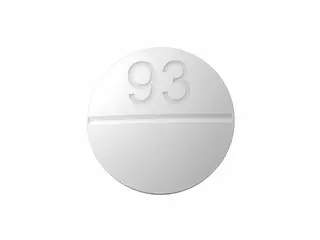Gastrointestinal Health
Explore a wide range of effective gastrointestinal health products designed to support digestion, relieve discomfort, and promote a healthy gut. Shop trusted supplements, medications, and remedies for acid reflux, indigestion, bloating, and more to maintain your digestive wellness.
Gastrointestinal health is vital for overall well-being. Many people face issues like acid reflux, indigestion, irritable bowel syndrome, and infections. Online pharmacies offer various medications to manage these conditions effectively. Here, we review popular medicines in this category, highlighting their uses and benefits.
Aciphex (rabeprazole) is a proton pump inhibitor (PPI). It reduces stomach acid production. This helps treat gastroesophageal reflux disease (GERD) and ulcers. Aciphex works by blocking the acid-producing enzyme in the stomach lining. It provides relief from heartburn and promotes healing. It usually begins to work within 1-2 hours.
Asacol contains mesalamine. It is used for ulcerative colitis and other inflammatory bowel diseases (IBD). Asacol works by reducing inflammation directly in the colon. Its targeted release helps soothe flare-ups and maintain remission. It is important to follow the prescribed dosage for best results.
Colospa (hyoscine butylbromide) relieves abdominal cramps. It works as an antispasmodic, relaxing the muscles of the gut. Colospa is often prescribed for irritable bowel syndrome (IBS) and other intestinal spasms. It provides quick relief from pain and discomfort associated with bowel movement.
Imodium (loperamide) is a common medication for diarrhea. It slows down the movement of the intestines, allowing more water to be absorbed. Imodium is effective in treating acute diarrhea and travelers’ diarrhea. It is not recommended for infections caused by bacteria, as it may worsen symptoms.
Maxolon (metoclopramide) helps with nausea, vomiting, and delayed gastric emptying. It promotes stomach emptying by enhancing muscle contractions. Maxolon is useful for conditions like gastroparesis and post-operative nausea. It may cause side effects like drowsiness or restlessness, so use with caution.
Motilium (domperidone) is also used to treat nausea and vomiting. Similar to Maxolon, it increases motility in the stomach and intestines. Motilium helps with bloating and fullness caused by slow digestion. It is usually well-tolerated but should be used under medical supervision due to possible heart-related risks.
Nexium (esomeprazole) is a popular proton pump inhibitor. It works similarly to Aciphex by reducing stomach acid. Nexium is often prescribed for GERD, Zollinger-Ellison syndrome, and erosive esophagitis. It provides long-lasting acid suppression and is effective for healing ulcers.
Pentasa contains mesalamine like Asacol, but its formulation releases the drug throughout the entire intestine. Pentasa treats ulcerative colitis and Crohn’s disease. It helps control inflammation and reduce symptoms like diarrhea and abdominal pain. Regular use can help maintain remission.
Pepcid (famotidine) is an H2 receptor antagonist. It reduces stomach acid production but works differently from PPIs. Pepcid is used for treating and preventing ulcers, GERD, and Zollinger-Ellison syndrome. It is faster acting than PPIs but generally less potent.
Prevacid (lansoprazole) is another proton pump inhibitor. It suppresses acid production to relieve symptoms of GERD and stomach ulcers. Prevacid is often prescribed for short-term treatment but can be used longer under medical guidance. It is known for its efficacy and safety profile.
Prilosec (omeprazole) is a widely used proton pump inhibitor as well. It helps those suffering from acid reflux, heartburn, and stomach ulcers. Prilosec works by blocking acid secretion in the stomach lining. It is available in prescription and over-the-counter forms.
Protonix (pantoprazole) is a PPI used to treat GERD, erosive esophagitis, and Zollinger-Ellison syndrome. It controls stomach acid effectively and provides symptom relief. Protonix is known for a good safety profile and minimal drug interactions.
Reglan (metoclopramide) is similar to Maxolon. It is used to treat nausea, vomiting, and delayed gastric emptying. Reglan promotes motility in the upper GI tract. It helps improve symptoms of gastroparesis and reflux. Care should be taken due to potential side effects such as fatigue and restlessness.
Xifaxan (rifaximin) is an antibiotic targeted at the gut. It treats traveler's diarrhea caused by certain bacteria. Xifaxan also manages irritable bowel syndrome with diarrhea (IBS-D) and hepatic encephalopathy. This medication is minimally absorbed into the bloodstream, reducing systemic side effects.
Overall, these medications cover a broad range of gastrointestinal concerns. Proton pump inhibitors like Nexium, Prevacid, Prilosec, Protonix, and Aciphex are first-line treatments for acid-related disorders. H2 blockers like Pepcid serve as alternatives or adjuncts. Mesalamine formulations such as Asacol and Pentasa manage inflammatory bowel diseases. Spasmolytics like Colospa help ease abdominal cramps. Antidiarrheals include Imodium and Xifaxan for specific infections. Prokinetics like Maxolon and Motilium aid in improving motility and reducing nausea.
Choosing the right medication depends on individual symptoms and medical history. Consulting a healthcare professional before starting any new treatment is essential. These drugs must be used responsibly to avoid side effects and interactions. Many of these medications have generic versions available, providing affordable options. Proper use can significantly improve quality of life by reducing discomfort and treating underlying conditions.
It is important to follow dosage instructions carefully. For chronic conditions, long-term management often requires regular check-ups and monitoring. Awareness of possible side effects, such as headaches, dizziness, or gastrointestinal upset, helps in timely reporting to your doctor. Some medications like Motilium and Maxolon may have restrictions due to potential heart-related risks and neurological effects.
In summary, the category of gastrointestinal health medications offers comprehensive solutions. From acid reducers and anti-inflammatory agents to antibiotics and antispasmodics, these medicines address various digestive ailments. Their availability through online pharmacies makes managing digestive health easier and more accessible for many patients.













